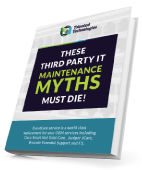 Photo by Anna Shvets from Pexels
Photo by Anna Shvets from Pexels
The pressures of managing a business in our present precarious financial climate is stressful. Managing payroll, sorting out rent of closed offices, and protecting your financial future can be daunting. It can be easy to be rushed into hasty decisions. Quarantine and city shutdowns have put many small businesses so deep in the red they have had to close. But that doesn’t mean it’s time to give up. You may have to close your doors because of debt, or maybe, you’ve been edged out of the new market. But with things as they are, now is not the time to do the work. There is money hiding throughout your old business if you know where to look. So before you make hasty decisions here’s a few ways you can make strategic moves to recoup some cash before your business closure.
A good rule of thumb is to use your time wisely. It can be easy to just declare a fire sale and give everything away. But just because your business is closing does not mean that you are without options. Now, more than ever, is a time to put on your business owner hat and make strategic financial decisions for your employees, your organization, and yourself. The skills to negotiate, get a fair market value price, and solve problems are all skills you can still use…even if you may feel like you’re up against the wall. So once you’ve decided it’s time to close your doors, start to look at the price tag for everything so you can get a good price.
1.Debts
As a small business, you can end up with large debts because you don’t have the bandwidth to go after some clients, customers, or former vendors. But if someone owes you a debt you have to consider your bottom line. In these crazy times, you may be more likely to see things from another person’s perspective. But you’ve also reached the point where you’ve had to close your business. Now is the time to go after those outstanding debts. If you can’t get them on your own you may want to consider a collection agency. If someone owes you outstanding payments that are in the 90 to 120 day past the due mark, it might be time to tap a collection agency. Many of these agencies work on a contingency basis, so they’re paid from the funds they collect, and motivated to get the highest price to retain their commission. You can also consider negotiating the debt directly with your debtees to see what amount of cash you can get upfront. This will help you settle your own debts. Also, don’t forget you can count some of these debts as business losses at tax time.
2. Your Office Equipment
Everything in your business has value. It’s worth considering ways you can get money back for everything you put in. Sure, you may not turn a profit but things do not lose their value because your offices have closed. You can find ways to get the best price for your office equipment and furniture. If you have a large amount of office space that you need to close out you may want to consider a company like Equipnet that sells office furniture from desk chairs to cubicles. If you have a bit more time on your hands you can also consider selling them in your local market on apps like LetGo or OfferUp. This may seem time intensive but time is money. If you plan strategically you can spend your final few weeks or last month liquidating everything and this extra effort could mean a larger percentage that you recoup from your initial investment. Also, when in doubt Craigslist is still an option. While these are crazy times, there are still people building businesses and expanding their organizations. Plus, it’s highly likely that given our need to keep safe distances that cubicles may become a part of our new normal in non-traditional ways.
3. Your Technology
 Photo by Alex Qian from Pexels
Photo by Alex Qian from Pexels
Computers, copiers, and even printers are often some of your largest investments. And there are other valuable tech equipment like a square or cash register lying around. But if you are not using it, it can be sold to someone else. You’ll want to ensure they get scrubbed of any personal, business, and financial information. You can even offer them to employees at a discount. Or, you can utilize a company like Talented Technologies which can give you an estimate for the market value of your old tech and get you the fairest price. You can also consider trading in to upgrade your own device or to downsize because it may still be valuable to retain some element of your business while shutting down your factory, office, or premises.
4. Old Inventory
 Photo by Tiger Lily from Pexels
Photo by Tiger Lily from Pexels
One key element to remember is that your debt does not depreciate the value of your assets. It just may increase the urgency you have to sell or give someone buying it a bit of leverage. So now is the best time to be smart, strategic, and skillful in how you sell your old inventory. You can consider selling it to old competitors, offer it as a sale on your website or to your clients, or you can research who may be in the market for old inventory. Also, depending on what you are selling you may still be able to manage a severely downsized version of your business. You may still be able to honor old orders with a severely reduced staff. You also may be able to partner with another small business to burn through some of your old inventory which may help you retain the value of your brand or IP.
5. Your Contacts, Prospects & Email List
You have done the work. You have built up a client list and a group of people who like and support your business. This doesn’t mean you should just stop talking to them. This list of clients and potential clients is valuable. You don’t just want to shred this list and be done with it. There also may be some value in finding a way to transition this list to a competitor, similar business, or future venture of your own. How you handle this list can affect your future in business so you may not want to just sell this email list outright. But you can find a potential buyer or a way to use this list to help you with your goals. They may even be the clients for everything on this list. We are all struggling through the present social and economic crisis. So you never know how your client base may come to your rescue.
6. Your URL
This can be easy to write off as one more thing to cancel and manage. But your URL does have equity. It’s built up a reputation on the Internet. It’s not something you just want to toss out and deactivate. While the management and maintenance of your website is something you may no longer be in the market for you may be able to turn your old URL into a chunk of change. Before you click cancel pursue your options for both retaining and the market for selling your URL. You want to make sure you don’t toss out any money. Remember, that while your business is closing now is the time to double up your workload. You can rest when all of the pieces of your business have found a new home.
7. Your Idea/IP
Finally, it’s worth considering what elements of your business can potentially be sold. You may be able to sell the sum of your business to a competitor or someone looking to enter into the market. Someone in a similar industry may be able to take your client list, old inventory, and even your debt and turn it into another vertical for their business. So while it may feel like debt collectors are nipping at your heels you may find a way to salvage the best parts of your business and only find them a new home. This also may be able to spare you the mental anguish of letting go of some employees or letting your business completely dissolve.
 Photo by Prateek Katyal from Pexels
Photo by Prateek Katyal from Pexels
These are just a few of the valuable things that can get lost in the kerfuffle to pay off debt and stop hemorrhaging money. But remember, while you cannot control the market, society, or our future you can control your reaction. So with the same cool head, understanding of the market, and creative mind that took you into business you can turn some of your dead weight into a windfall that spares you debt, headache and heartache. After all, you were able to grow your business, there’s no reason to not give it the proper sendoff it deserves.
 Photo by
Photo by  Photo by
Photo by 








